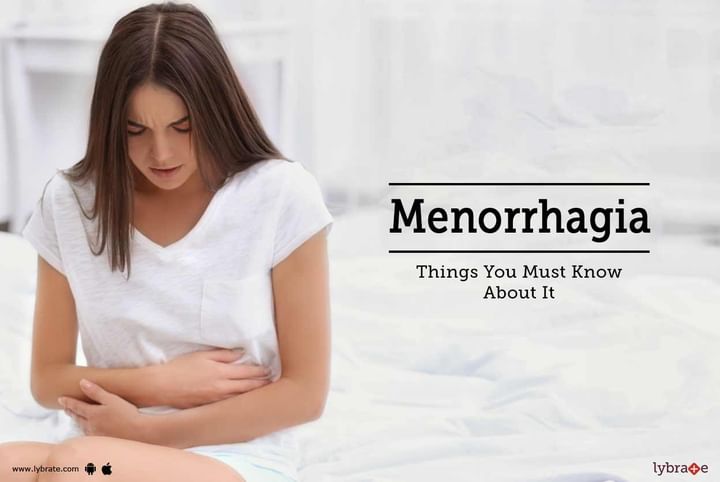Menorrhagia- Things You Must Know About It
A girl’s first period or Menarche marks her transition from a ‘girl’ to a ‘woman’. Most girls have their first period between the ages of 11 to 13 depending on their genetic structure, body weight, nutrition and maturity of the hypothalamic-pituitary-ovarian axis. Periods are usually irregular in the first two years and gradually settle into a pattern. Along with the duration of the periods, there may also be fluctuation in the amount of blood being lost. Puberty menorrhagia can be described as excessive vaginal bleeding during menstruation. This can occur up to the age of 19 years.
One of the characteristic symptoms of menorrhagia during puberty is having to change tampons or sanitary napkins every 2-3 hours. Periods that last more than 7 days can also be a sign of this condition. While the average amount of blood lost during menstruation is 30ml, adolescents suffering from this condition can lose up to 80ml of blood. Other symptoms include acne, pale skin, the growth of excessive facial or body hair and palpitations of the abdomen. These indicate an imbalance of hormones within the body.
In most cases, this condition is caused by anovulatory cycles. This can be described as a menstrual cycle in which an egg is not released by the ovaries. Anovulatory cycles may be triggered by sudden changes in hormone levels, drastic weight loss or weight gain, stress, extreme levels of exercising and an imbalanced diet. The use of hormonal contraceptives and infections may also cause excessive menstrual bleeding. Less common causes of this condition include endocrine disorders, systemic illnesses and structural lesions such as cervical polyps or fibroids.
While menorrhagia is common during puberty, if it continues for over three months, you must consult a doctor. Depending on the factors triggering this condition it can be treated with hormonal or non-hormonal medication or even a combination of the two. Treatment for this condition must be tailored to each patient while keeping in mind her age, family medical history and co-existing medical conditions. Hormonal treatment for excessive menstrual bleeding can take the form of oral contraceptives or progesterone tablets. Non-hormonal forms of treating this condition include iron supplements and medication to reduce blood flow. You should also eat more food that is rich in iron and vitamins while reducing intake of proteins and spicy foods. Home remedies for this condition include drinking a tea made with coriander seeds or adding cinnamon to your usual cup of tea.
In case you have a concern or query you can always consult an expert & get answers to your questions!



+1.svg)
